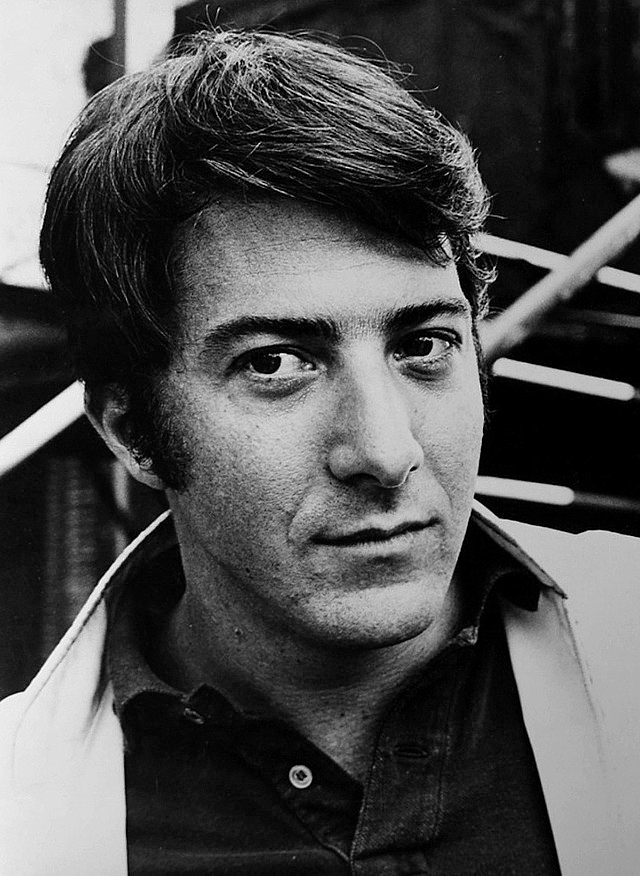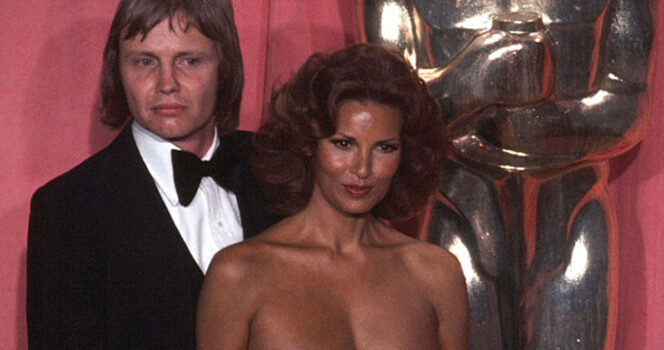Nearly five decades have passed since the 47th Academy Awards lit up Hollywood, yet echoes of that night still stir conversations, debates, and nostalgia. The Oscars of 1975 were not just about sequined gowns, golden statuettes, or red-carpet poses. They were a mirror of a changing America—where glamour rubbed shoulders with scandal, and politics slipped into an event meant to celebrate cinema. It was a ceremony that revealed the fractures beneath Hollywood’s glossy veneer, a night that remains one of the most debated evenings in entertainment history.

The era itself set the stage. In the mid-1970s, the United States was still reeling from Vietnam, the Watergate scandal had left scars, and cultural values were shifting. Hollywood, too, was undergoing transformation. The “New Hollywood” generation—directors and actors pushing raw, unfiltered realism—was challenging the old guard of glamour and safe storytelling. The Academy Awards, in that climate, became more than a ceremony; they became a battleground between tradition and rebellion.
Dustin Hoffman’s Unflinching Words
Among the evening’s most remembered moments was the intervention of Dustin Hoffman. Then already a force in the industry, Hoffman delivered a sharp critique of the Oscars themselves, dismissing the ceremony’s excess and its tendency to glorify superficiality over substance. His remarks weren’t wrapped in polite detachment; they cut straight to the heart of Hollywood’s identity crisis.
For an audience tuned in for spectacle, his words were jarring. Some applauded his candor, seeing it as a much-needed check on an industry lost in its own reflection. Others bristled at the audacity, believing Hoffman had broken the unspoken rule of the evening: the Oscars were for celebration, not scolding. That flash of rebellion, however, reflected the growing unease in Hollywood about its place in a world that was demanding more honesty and less artifice.
Sinatra’s Gaffe and His Statement on Vietnam
If Hoffman’s critique was deliberate, Frank Sinatra’s stumble was a collision between old-world Hollywood charm and the unpredictability of live television. Sinatra, a fixture of American entertainment and a man whose presence radiated authority, made a notable gaffe on stage. The specifics of the slip may have faded in collective memory, but what came after ensured the moment would not.
Sinatra used his platform to speak against the war in Vietnam. At a time when the nation was bitterly divided, and the industry itself was struggling with how outspoken it should be, his words reverberated. For some, it was courageous—a star using his influence to call for peace. For others, it was inappropriate, proof that the Oscars had become entangled in the same political arguments tearing the country apart.
In today’s ceremonies, political statements are almost expected. But in 1975, Sinatra’s choice shocked the audience, adding fuel to an ongoing debate: Should the Oscars remain a sanctuary of escapism, or should they serve as a stage for moral and political pronouncements?
The Snapshot That Endures
If speeches fade with time, images often last forever. The photograph of Jon Voight and Raquel Welch taken that night has become one such artifact. It continues to circulate, decades later, stirring conversations about gender, celebrity culture, and how fame is constructed. Welch, already an icon of beauty, exuded the kind of magnetic glamour that the Oscars were famous for. Voight, young and intense, symbolized the rise of a new era of actors more concerned with raw storytelling than polish.
That single image captured the tension between two Hollywoods—the one draped in silk and diamonds, and the one ready to rip down the curtains and tell stories that were messy, painful, and real. Commentators still revisit it as shorthand for the crossroads the industry faced in the mid-1970s.

A Ceremony of Contradictions
Beyond these headline moments, the 1975 Oscars were riddled with contradictions. On one hand, the event clung tightly to the traditions of elegance and formality. Stars swept into the auditorium in gowns and tuxedos, flashbulbs popped, and the orchestra swelled with triumphant fanfare. On the other hand, every misstep, every unscripted word, every awkward pause seemed to expose an undercurrent of unease.
It was as though Hollywood, for one night, couldn’t decide whether it wanted to maintain its carefully curated image or embrace the honesty demanded by a changing society. The ceremony reflected not just a film industry in flux, but an America grappling with its identity in the aftermath of war and scandal.
Why It Still Resonates
What makes the 1975 Oscars unforgettable isn’t only the drama of the night, but the way it anticipated debates that still rage today. Every March, when the Academy Awards return, audiences brace themselves for political speeches, on-stage surprises, or viral images that will dominate headlines the next morning.
But nearly fifty years ago, those very elements caused shockwaves. Hoffman’s critique made people question whether the Oscars should pat themselves on the back or confront their flaws. Sinatra’s statement sparked arguments about whether Hollywood stars should wield political influence on such a stage. The image of Voight and Welch immortalized the tension between beauty and artistry, between spectacle and substance.
Unlike some ceremonies that fade quietly into memory, the 1975 Oscars remains alive in cultural conversation because it wasn’t just about winners and losers—it was about what the Oscars meant. Were they a cathedral of glamor, or a stage for truth? A fantasy, or a reflection of reality? That tension still defines the show today, which is why the 47th Academy Awards continues to cast such a long shadow.
Legacy of a Night
In hindsight, the evening feels like a pivot point. The Oscars would never again be only about gowns and trophies. The events of that night cracked the illusion of Hollywood as a perfect machine of glamour, exposing the humanity, politics, and contradictions beneath.
And maybe that’s why the debates continue. For some, the 1975 Oscars signaled the beginning of the end of old Hollywood. For others, it was proof that the Academy could adapt, however messily, to the times.
Either way, nearly fifty years later, one thing is certain: the 1975 Academy Awards was not just a ceremony—it was a story in itself, a performance as layered and unforgettable as the films it claimed to honor.
